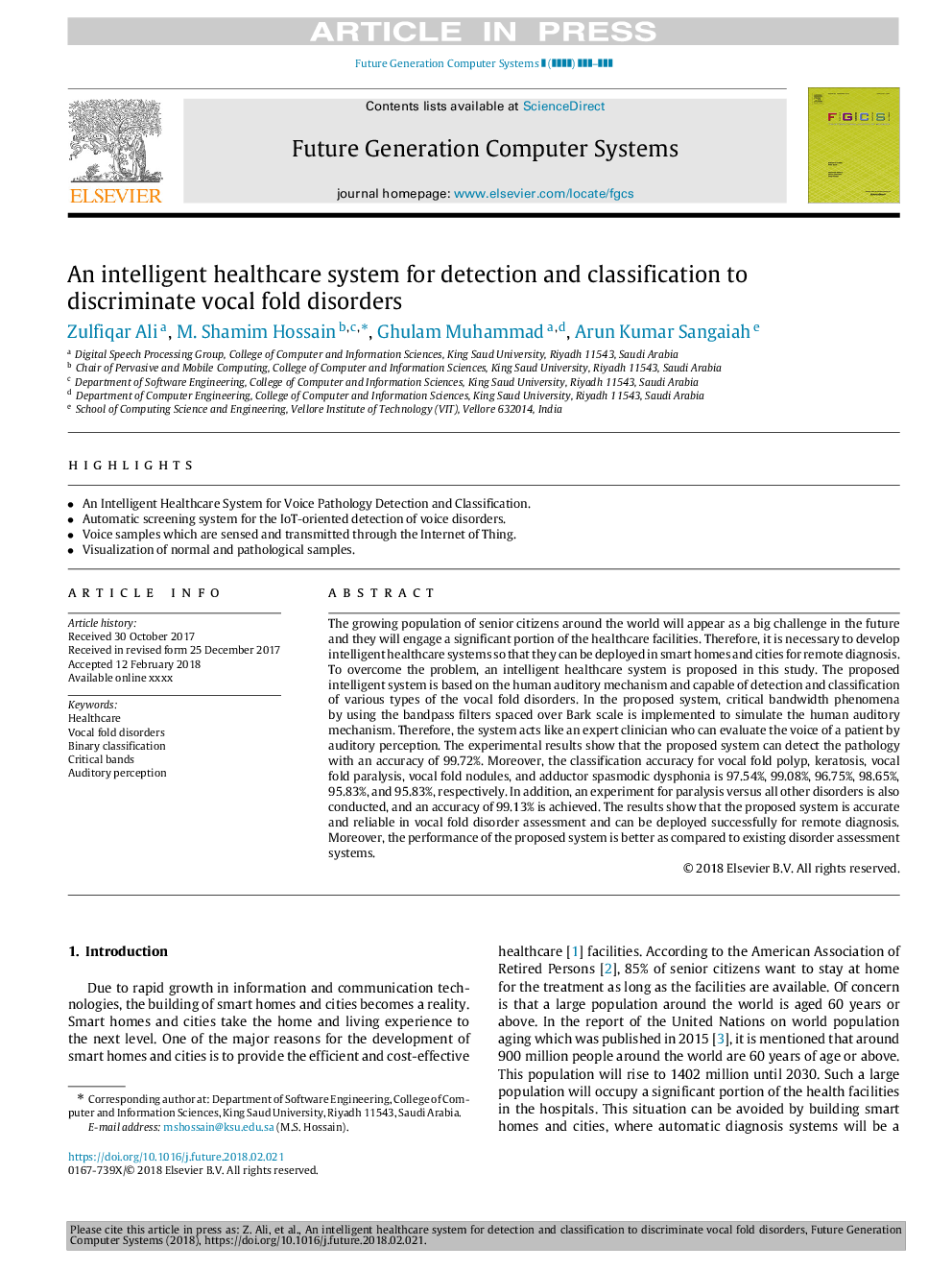ترجمه فارسی عنوان مقاله
یک سیستم مراقبت بهداشتی هوشمند برای تشخیص و طبقه بندی برای تشخیص اختلالات تکراری صوتی
عنوان انگلیسی
An intelligent healthcare system for detection and classification to discriminate vocal fold disorders
| کد مقاله | سال انتشار | تعداد صفحات مقاله انگلیسی |
|---|---|---|
| 88969 | 2018 | 10 صفحه PDF |
منبع

Publisher : Elsevier - Science Direct (الزویر - ساینس دایرکت)
Journal : Future Generation Computer Systems, Volume 85, August 2018, Pages 19-28
ترجمه کلمات کلیدی
مراقبت های بهداشتی، اختلالات دورانی آوازی، طبقه بندی باینری، گروه های بحرانی، ادراک شنوایی،
کلمات کلیدی انگلیسی
Healthcare; Vocal fold disorders; Binary classification; Critical bands; Auditory perception;

